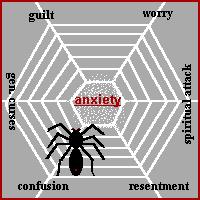I have been divorced a long time. What can I do?
I have been divorced for ten years. What should I do?

It is so unfortunate that you felt that your problems were so difficult and unique that there was no way to resolve them. It seems that you are now realizing that most of life’s problems are short-lived and that on the other side of them, it is easier to see what would have been the right decision.
I have been divorced a long time. What can I do? Read More »

 What would Jesus think if I showed up in Bethlehem?
What would Jesus think if I showed up in Bethlehem?


 A Christian friend once told me, “Well, why even talk about feelings, because you can’t trust them anyway. The Bible says, Have faith and don’t trust your feelings.” Well, that’s not really a healthy attitude at all, because feelings are real. Denial is all of these repressed and stuffed emotions, and part of sobriety and getting better means that all of a sudden all of the pain that has been pushed down. And anger, and everything else that has been there, is going to start rising to the surface, and these people will start feeling depression and loneliness and fear. And we need to be prepared to hear those things and to respond to them in a supportive, kind way. It doesn’t mean that — and some of those feelings are not accurate at all, but still need to be respected and accepted. It has to be there.
A Christian friend once told me, “Well, why even talk about feelings, because you can’t trust them anyway. The Bible says, Have faith and don’t trust your feelings.” Well, that’s not really a healthy attitude at all, because feelings are real. Denial is all of these repressed and stuffed emotions, and part of sobriety and getting better means that all of a sudden all of the pain that has been pushed down. And anger, and everything else that has been there, is going to start rising to the surface, and these people will start feeling depression and loneliness and fear. And we need to be prepared to hear those things and to respond to them in a supportive, kind way. It doesn’t mean that — and some of those feelings are not accurate at all, but still need to be respected and accepted. It has to be there.

 All of these numbers may be phoned directly. No operator assistance is necessary. All lines to heaven are open and available 24/7.
All of these numbers may be phoned directly. No operator assistance is necessary. All lines to heaven are open and available 24/7.